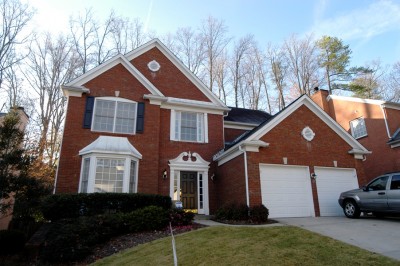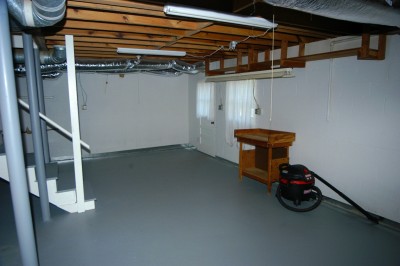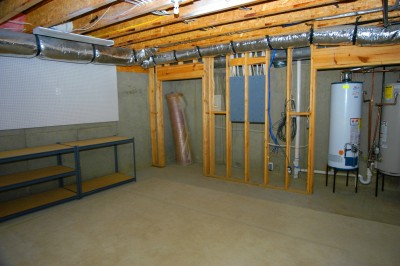ATLANTA HOME BUYER MISTAKES: AVOID THE DIRTY DOZEN
ATLANTA HOME BUYER MISTAKES: AVOID THE DIRTY DOZEN
PART ONE: Termites, Electric Panelboard Box, Foundation Failure, Leaking Basements
 Many homeowners know that there is a sabotage group, which we affectionately refer to as “the dirty dozen,” constantly at work to undermine their investment in home and hearth. These fighters go behind the lines to attack the core of a home’s financial value.
Many homeowners know that there is a sabotage group, which we affectionately refer to as “the dirty dozen,” constantly at work to undermine their investment in home and hearth. These fighters go behind the lines to attack the core of a home’s financial value.
Over the years we have seen these “dirty dozen” defects in many homes in the Atlanta area. In fact, it is almost impossible to find a previously-owned home in Atlanta that has not experienced an invasion of at least one of the “dirty dozen” at some point.
An infestation of TERMITES can cause a great deal of gnashing of teeth and wailing among homeowners. These subterranean insects are everywhere in our Atlanta landscape. And, while they are great aids in the decomposition of fallen trees in a forest, their main diet in a suburban setting can be the very structure of your home.
Homeowners affected by termites should have their home treated – utilizing chemical poisoning or a bait system such as Sentricon – and then keep an annual contract with a termite and pest control company.
When buying a home, purchasers should request a wood infestation report, (a.k.a. termite letter), which will show the presence of any active infestation. This letter is supplied by a Georgia licensed (State Agriculture Department) termite and pest control company.
ELECTRIC PANEL BOARD BOX
Technology for electric service in the home has advanced considerably since the construction of some older homes in the Atlanta area.
Circuit breaker panel boards have replaced the older fuse box technology. Both are devices that interrupt the flow of electricity if an excessive level of current surges through the circuit, but circuit breakers on a panel board can simply be reset if they are tripped.
Fuses have to be replaced if there is an electrical surge. And, if someone sticks a 30 amp fuse in a 15 amp fuse slot, you have a good chance of starting a fire in the home.
Remember, use of electricity in the home has ramped up dramatically with the use of computers, microwaves, modern appliances and electronics in the home. The technology in your home for handling this electrical load may be outdated.
Homebuyers will want to have an inspector knowledgeable about electrical service components determine if an existing fuse box is adequate for the present electrical load. Your inspector should also watch for “double taps” of circuits on the fuse box or panel board. Either could lead to potentially dangerous fire hazards in the home.
Horizontal cracks in the foundation wall are a sign of potential problems for the home owner as well as the buyer. Most of Atlanta’s older homes have foundation walls constructed of concrete block while granite stone foundation walls can be seen in the oldest Atlanta homes.
These walls are subject to hydrostatic pressure from improperly functioning gutters or drainage around the home. Water pressure pushes in on the walls, causing cracks.
Horizontal cracks are evidence of a foundation failure, while vertical cracks are more likely just normal settling of the footing and foundation.
The actual repair of the foundation can be a rather simple internal bracing of the wall with steel framing on the interior of the home. Most waterproofing companies can design an interior framing system that will structurally support the load formerly placed entirely on the block wall or foundation. In addition, they will be able to attack the moisture problem.
We would venture to guess that almost every basement in Atlanta has leaked somewhere along the way. Our clay soils, combined with heavy rains, create a potent attack on the footings and foundation of your home.
The old solution included digging out the walls from the outside, placing a new French- type drainage system along the footing, and then shoveling soil back in place along the foundation. This was an expensive solution which could destroy landscaping, though it was usually effective.
The most prevalent solution today is an interior waterproofing system. The concrete along the outer edges of the basement is cut away and a trench is excavated along the perimeter of the basement. A drainage system is installed in the trench – some combination of plastic pipe, granite gravel, and liners – that carries the water out of the house before it can enter the finished portion of the home.
should know the telltale signs of the presence of a “dirty dozen” threat in the home and raise a red flag when tracks are spotted. Some of the “dirty dozen” are easy to eliminate and are really no more than a nuisance. Others are downright obstinate, and may be near impossible to completely eradicate from the home. Remember, you will find a wealth of information and assistance if you start by alerting your home inspector to these threats.
SALLY ENGLISH AND THE ENGLISH TEAM ASSIST ATLANTA HOME BUYERS
in the search for homes of high emotional and financial value. We also coach our Atlanta home buyers on how to avoid the dirty dozen home buyer mistakes. We also know affordable contractors who can repair the dirty dozen house defects if you find a home you can’t live with out that has a dirty dozen problem.
CALL or TEXT SALLY ENGLISH AND THE ENGLISH TEAM
for great advice on buying or selling an Atlanta Georgia home: 404-229-2995. We look forward to hearing from you.



